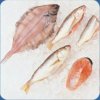 |
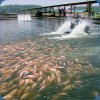 |
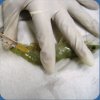 |
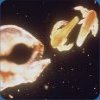 |
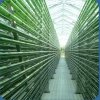 |
Laboratory of Microbial Ecology and Technology
Department of Biochemical and Microbial Technology< Faculty of Bioscience Engineering
Personnel
- Willy Verstraete
- Nico Boon
- Tom Van de Wiele
- Tom Defoirdt
- Sam Possemiers
- 25 PhD students
Activities
The Laboratory of Microbial Ecology and Technology (LabMET) is a part of the Faculty of Bioscience Engineering, Ghent University. LabMET has focussed for almost 30 years on one central theme: the functioning of microbial communities. Efforts have concentrated on unravelling the microbial communities occurring in waste treatment technologies in soils and waters. LabMET has a staff of 2 Teaching Professors, 7 Post-doctoral collaborators, 25 PhD- and 20 masters students involved in research. LabMET has a well-established record of giving rise to industrial spin-offs. Some firms that are cooperating with LabMET are e.g. Avecom, Biotim, Epas, OWS and Proviron. Several other environmental actors have been inspired by developments at LabMET. The research group publishes 30-35 papers in double-refereed journals per year.
LabMET Vision: mixtures of micro-organisms can interact as communities. Each species in such a community represents a functional biological entity with numerous capabilities. The assemblage of these entities represents, when properly organized, a powerful resource. LabMET focuses on the optimal management of these microbial resources in various open non-contained systems such as soils, waters, gastro-intestinal systems
The vision of LabMET is that MICROBIAL RESOURCE MANAGEMENT - MRM – enables to:
- generate new products and processes
- improve human and environmental health
- assure environmental sustainability
In the domain of aquaculture LabMET investigates biological nitrification and denitrification processes by using specialised nitrifying inocula and dialysis reactors. Probiotic consortia and quorum sensing disruption strategies are used for the abatement of aquatic pathogens. Biologically produced nanosilver has been developed for water disinfection and has bactericidal and algaecidal properties. M ixed microbial communities in bioflocs are produced as aquaculture feed, containing high valued biomass, containing e.g. fatty acids, PHA, proteins, vitamins, probiotics, ... A close scientific collaboration between LabMET and ARC exists more then 10 years by common research projects (FWO).
abMET is fully equipped to operate different reactor types (SBR, biofilm-, dialysis-, membranereactors, etc.) and to perform standard microbial and chemical analysis (HPLC, GC, IC, ...). Moreover, LabMET has a microbial ecology group to investigate microbial community dynamics and composition by state-of-the-art molecular techniques (PCR-DGGE, real-time PCR, clone library construction, Fluorescent in situ Hybridisation and flow cytometry). These techniques have been frequently applied to monitor the microbial communities in aquaculture systems.
Contact
- Websites
- e-mail addresses
- tel: + 32 9 264 5976
- fax: + 32 9 264 6248
- Mailing address:
- Laboratory of Microbial Ecology and Technology (LabMET)
- Faculty of Bioscience Engineering, Ghent University
- Coupure Links 653
- B-9000 Gent, Belgium

Laboratory of Aquaculture (Rozier 44 (tel: +32 (0)9 264.37.54 (fax: +32 (0)9 264.41.93

